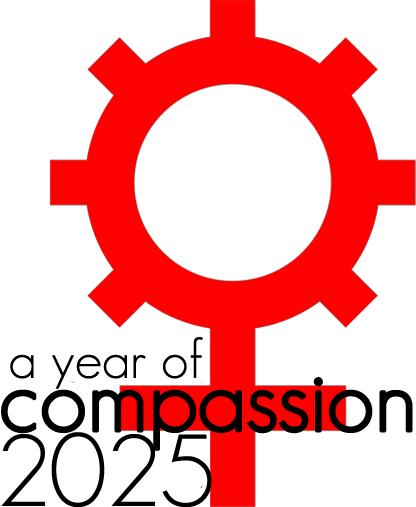The Link to the 2025 : A Year of Compassion Project is here
Compassion is a skill; being compassionate is succeeding in using said skill. Skills take practice to develop proficiency, and we shouldn’t expect perfection from ourselves (or anyone, really). In the West, we are used to flipping a switch and things working instantly. Beyond that, we’re often conditioned to respond (and expect responses) from people swiftly as well and negatively react when we don’t receive immediate feedback. We also carry in our pockets a device which will give us immediate feedback on demand 24/7. We have become accustomed to a request for stimulus to be met in a short timeframe.
Theodore Roosevelt once said, “Nothing in the world is worth having or worth doing unless it means effort, pain, difficulty…” A more modern adage is, ‘there is no free lunch.’ Compassion is, at its core, something that relieves pain, but that does not at all mean the journey to get there is painfree. The journey to make a medicine takes significant effort to research, test, refine, review, and finally help as intended; compassion is a medicine of the heart, and it too takes effort to let go of the judgments and the pain and try to see more than just the immediate negatives.
Bad days or slip-ups are not in and of themselves indications we have abandoned the compassionate path. Sometimes it is hard to see our efforts reduced the severity of the slip-up in question as we were trying our best, but a little bit (of things we didn’t want) got through anyway. All we are focused on is the bit that got through as opposed to all that didn’t, how many times it didn’t, and how sincere our efforts are to mend internal and external bridges. The ‘perfect or catastrophe’ approach is another consequence of the modern busy lifestyle.
It is ok to slow down. The anxiety we feel is something that can fade in time as we let ourselves stop trying to ‘keep up.’ If we’re honest with ourselves, the ones who benefit most from all of us trying to ‘keep up’ don’t need the extra help anyway – especially now when they have the best government they can buy. By slowing down, we give ourselves a crucial opportunity – to ensure our actions align with our intentions (*1), which is itself a form of self-compassion. Working toward a goal we do not share will never bring us the peace and joy we yearn for.
Compassion takes time to implement fully, and we will know it is in full effect when it is effortless. If we’re still torn about something, we’re not there yet; if we still feel anxious about something, we’re not there yet. It could be we still have yet to learn everything about a lesson from the past; it could be we still have not let ourselves experience the totality of how we sincerely feel; it could be we have not taken action deep down we know we need to initiate. Compassion is a skill, and all skills only benefit from how earnestly you practice them. Take a breath; practice compassion. You are worth it.
(*1) – Activities in which our actions and intentions align is a definition of Meditation. Meditation can absolutely be part of a self-compassion practice. You could be deliberate and have a ‘Self-Compassion Meditation!’ What would that look like? Take a moment to reflect on yourself and the day – look at what you did that day in a positive light. Maybe you got some backlog done that you’ve been meaning to do. Maybe you successfully navigated some stressful moments (or people), and you can acknowledge yourself for it. Maybe you let yourself rest, breathe, and put the weight of the world down for a moment – which is important and overlooked in today’s world. Maybe you made progress on a big goal or project, and you feel good about it! We do things every day, and all it takes is a moment or two to stop and practice a bit of self-compassion in the form of acknowledgments and affirmations.
